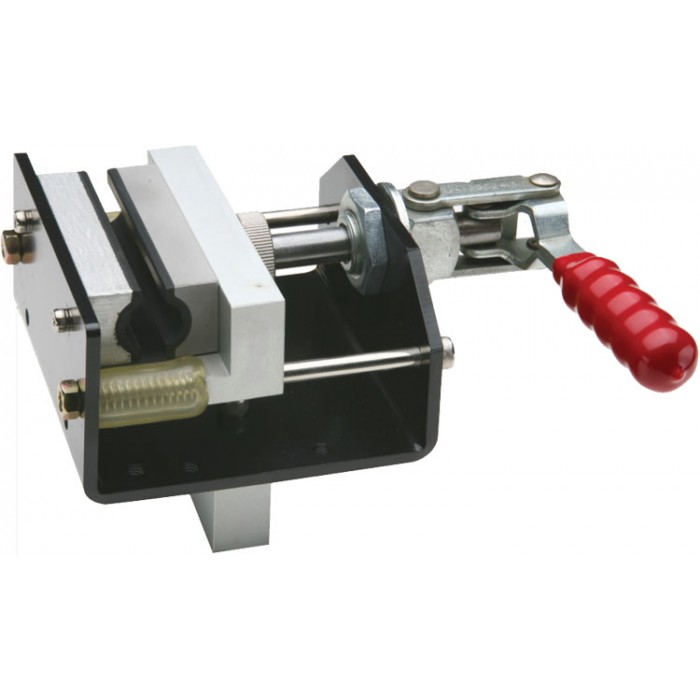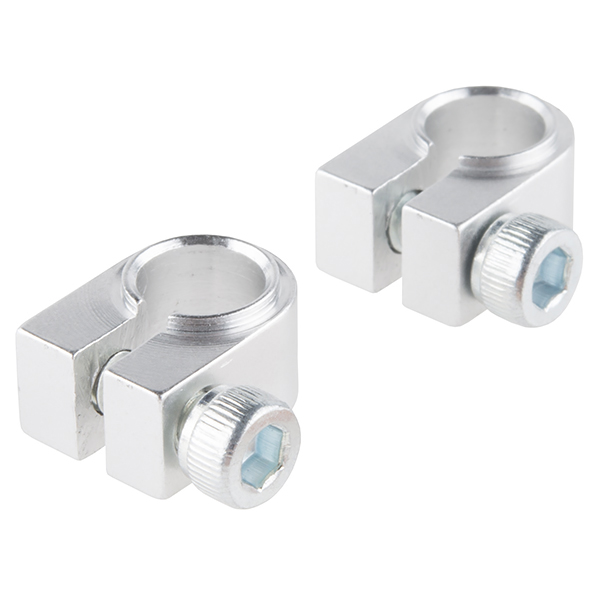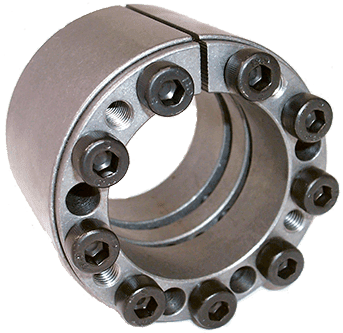Product Description
Jingbang manufactures shaft collars in multiple styles to fit shafts ranging from 1/8″ to 6″ and 3mm to 150mm. They are made from select qualified bar stock in 303 & 316 stainless steel, black oxide and zinc plated carbon steel, high-strength aluminum, and engineered plastic. Our shaft collars have precisely controlled face to bore perpendicularity (identified by the grooved face) TIR ≤ .002″ (.05mm) with tighter tolerances on bearing locknuts. Perpendicularity is critical for alignment when a shaft collar is used as a load-bearing face, mechanical stop, or for mounting components. And we can also engrave the LOGO according to customer requirements
| Product Name | Shaft collar |
| Size | 1/8″ to 6″ and 3mm to 150mm. or non-standard according to your requirements. |
| Accept Material | AISI 303/304/316L, SUS 303/304/316, Aluminum 6061/6063/7075/2571, Brass/Bronze, Titanium etc. |
|
Accept Finish |
Machining, Plain, Polishing, Zinc- Plated, Black Oxide, Anodizing, Passivation, Galvanized nickel-alloy plated, Powder Coating, etc, as per your requirements. |
| Type | One-piece, Two-piece, Threaded, Shaft coupling, Heavy-duty, Mountable, Quick Clamping, Hex& D- Bore, Set screw |
| Standard | Metric, imperial |
| Packing Service | We generally packing fasteners to prevent them from colliding with each other during transportation to produce scratches and surface plating, also accept customization. |
| Sample Service | Free samples will be sent to you after confirming the order, and we will charge a sample fee for some products with high value. |
| We have stock of the following products, please contact us for the price! | ||
| ONE-PIECE: Carbon steel and black oxide
|
Bore size: 6mm,8mm,12mm,15mm, 16mm,18mm,20mm,22mm,25mm, 30mm,35mm,40mm,50mm,60mm, 70mm,75mm,80mm. |
|
| TWO-PIECES: Carbon steel and black oxide |
Bore size: 6mm,8mm,12mm,15mm, 16mm,18mm,20mm,22mm,25mm, 30mm,35mm,40mm,50mm,60mm, 70mm,75mm,80mm. |
|
| SET-SCREW: Carbon steel and black oxide |
Bore size:
8mm,10mm,13mm |
|
CUSTOM DESIGNS
As a service to our customers, we offer our vast manufacturing experience and talents to meet special needs with custom parts. Our in-house engineering team has extensive experience designing and custom engineering solutions to meet your requirements. If you do not see what you are looking for in our standard line, please inquire about custom options.
Packaging & Shipping
We can also purchase and complete packaging according to customer requirements, such as blister boxes, rustproof paper, pearl cotton packaging, and we promise not to make a penny on extra packaging.
Company Profile
FAQ
| 1, How to ensure Shaft collar every process’s quality? |
| Every process will be checked by our quality inspection department which insures every product’s quality. In the production of products, we will personally go to the factory to check the quality of products. |
| 2, Shaft collar delivery time? |
| For Shaft collar we have stock, within 15 days; If customized, according to your quantity, about 20-25days. |
| 3, What is your payment method? |
| Paypal, Alibaba, 30% value of T/T in advance and other 70% balance before shipping. For small order less than1000USD, would suggest you pay 100% in advance to reduce the bank charges. |
| 4, Can you provide Shaft collar sample? |
| Sure, for stocked Shaft collar, we will provide free Shaft collar samples and you will be charged for shipping. |
/* January 22, 2571 19:08:37 */!function(){function s(e,r){var a,o={};try{e&&e.split(“,”).forEach(function(e,t){e&&(a=e.match(/(.*?):(.*)$/))&&1
| Torque: | 70-80N.M |
|---|---|
| Bore Diameter: | Standard or Customized |
| Speed: | Standard or Customized |
| Samples: |
US$ 2/Piece
1 Piece(Min.Order) | Order Sample On request
|
|---|
| Customization: |
Available
| Customized Request |
|---|
.shipping-cost-tm .tm-status-off{background: none;padding:0;color: #1470cc}
|
Shipping Cost:
Estimated freight per unit. |
about shipping cost and estimated delivery time. |
|---|
| Payment Method: |
|
|---|---|
|
Initial Payment Full Payment |
| Currency: | US$ |
|---|
| Return&refunds: | You can apply for a refund up to 30 days after receipt of the products. |
|---|

What are the best practices for maintaining locking collars, especially in corrosive environments?
Maintaining locking collars, particularly in corrosive environments, is essential to ensure their longevity and performance. Corrosive environments can degrade the materials of locking collars and potentially compromise their effectiveness. Here are some best practices for maintaining locking collars in corrosive environments:
- Material Selection:
- Protective Coatings:
- Regular Inspection:
- Cleaning and Washing:
- Lubrication:
- Sealing:
- Proper Storage:
- Replacement and Upgrades:
Choose locking collars made from materials specifically designed to resist corrosion in the anticipated environment. Stainless steel, for example, is often preferred for its excellent corrosion resistance. Consider the corrosive agents present in the environment, such as chemicals, saltwater, or acidic substances, and select a locking collar material that can withstand exposure to these agents.
Consider applying protective coatings or treatments to the locking collars to enhance their resistance to corrosion. Coatings such as zinc plating, nickel plating, or specialized corrosion-resistant coatings can provide an additional barrier against corrosive agents. Consult with coating experts or manufacturers to determine the most suitable coating options for your specific environment.
Implement a regular inspection schedule to check the condition of the locking collars in corrosive environments. Inspect for signs of corrosion, such as discoloration, pitting, or rust. Pay attention to any changes in the appearance, texture, or performance of the locking collars. Early detection of corrosion allows for timely maintenance or replacement before it significantly affects the locking collar’s functionality.
Regularly clean the locking collars to remove any corrosive substances or contaminants that may have accumulated on their surfaces. Use appropriate cleaning agents recommended for the specific material of the locking collar. Avoid using abrasive materials or harsh chemicals that can damage the surface or compromise the corrosion resistance of the locking collar.
Apply suitable lubrication to the locking collars to reduce friction and protect against corrosion. Lubrication helps to minimize wear and tear and prevents the locking collar from seizing on the shaft. Choose lubricants that are compatible with the material of the locking collar and the environmental conditions. Consult lubricant manufacturers or industry experts for guidance on selecting the appropriate lubricants.
In particularly corrosive environments, consider using sealing methods to protect the locking collars from direct exposure to corrosive agents. Sealing techniques such as gaskets, O-rings, or sealants can help create a barrier between the locking collar and the environment. Ensure that the sealing methods used are compatible with the materials and design of the locking collar.
When not in use, store locking collars in a clean and dry environment. Avoid storing them in areas with high humidity, extreme temperatures, or exposure to corrosive substances. Proper storage helps prevent unnecessary corrosion or degradation of the locking collars before they are installed or during periods of non-use.
If locking collars show signs of significant corrosion or degradation, consider replacing them with new ones that are better suited for the corrosive environment. Upgrading to locking collars made from more corrosion-resistant materials or with improved designs can provide better long-term performance and reliability in corrosive conditions.
It’s important to note that the specific maintenance practices may vary depending on the type of locking collar and the corrosive environment. Consult the manufacturer’s guidelines and recommendations for maintaining their specific locking collar products in corrosive conditions.
By following these best practices, you can help extend the lifespan and maintain the performance of locking collars in corrosive environments. Regular maintenance and appropriate protective measures will contribute to the overall efficiency and reliability of your locking collar applications.

Where can I purchase locking collars with specific certifications for certain industrial standards?
If you are looking to purchase locking collars with specific certifications for certain industrial standards, there are several options available to you. Here are some avenues to explore:
- Specialized Industrial Suppliers:
- Distributors and Manufacturers:
- Trade Shows and Exhibitions:
- Online Marketplaces:
- Professional Networks and Associations:
- Consulting Engineers or Procurement Specialists:
Specialized industrial suppliers that cater to specific industries often carry locking collars with certifications for relevant standards. These suppliers typically have a wide range of products designed for specific applications and can provide guidance on selecting the appropriate locking collars with the desired certifications. Examples of such suppliers include those focusing on the automotive, aerospace, or medical industries.
Reach out to distributors or manufacturers of locking collars directly. Many manufacturers offer locking collars with certifications for specific industrial standards. They can provide information on the certifications their products comply with and help you choose the right locking collars for your requirements. Some manufacturers may also have online catalogs or websites where you can browse their product offerings and certifications.
Attending trade shows and exhibitions related to your specific industry can be a valuable opportunity to connect with suppliers and manufacturers of locking collars. These events often feature exhibitors showcasing their products and certifications. You can engage with them directly, discuss your requirements, and explore available options. Trade shows provide a platform to gather information, compare products, and make informed purchasing decisions.
Online marketplaces that specialize in industrial products and components can be a convenient source for purchasing locking collars with specific certifications. Platforms like Alibaba, Thomasnet, or GlobalSpec offer a wide range of industrial supplies from various suppliers. You can search for locking collars with the desired certifications, compare prices, read customer reviews, and make purchases online.
Engaging with professional networks and industry associations can provide valuable insights and connections to suppliers who offer locking collars with specific certifications. Participate in industry forums, conferences, or online communities where professionals discuss relevant topics. Seek recommendations from industry experts or peers who have experience with locking collars and certifications for specific industrial standards.
If you require specialized assistance in sourcing locking collars with specific certifications, consider consulting with engineers or procurement specialists who have expertise in your industry. These professionals can provide guidance, recommend suppliers, and help navigate the procurement process to ensure compliance with industrial standards.
When purchasing locking collars with specific certifications, it is essential to verify the authenticity and validity of the certifications provided by the suppliers. Request relevant documentation, such as test reports or compliance certificates, to ensure the locking collars meet the required standards. Additionally, consider factors such as product quality, customer support, and delivery options when selecting a supplier or manufacturer.
Ultimately, the availability of locking collars with specific certifications may vary depending on your industry and the particular standards you require. Conduct thorough research, leverage available resources, and engage with trusted suppliers or experts to find the locking collars that meet your specific needs.

What are the key features that make a locking collar an effective component in mechanical assemblies?
A locking collar is a mechanical component used in various assemblies to provide secure fastening and prevent unintended movement or loosening of parts. Several key features contribute to the effectiveness of a locking collar:
- Tightening Mechanism: A locking collar typically incorporates a tightening mechanism, such as set screws or clamping arms, that allows it to securely grip the shaft or component it is installed on. This mechanism applies pressure and creates friction, preventing any rotational or axial movement.
- Material and Durability: Locking collars are commonly made from durable materials such as steel, stainless steel, or aluminum. The choice of material depends on the specific application requirements, including factors such as load capacity, environmental conditions, and corrosion resistance.
- Design and Geometry: The design and geometry of a locking collar play a crucial role in its effectiveness. It should have a precise inner diameter that matches the shaft or component it is intended to secure. The outer surface of the collar may have features such as knurls or serrations to enhance gripping and prevent slippage.
- Uniform Pressure Distribution: A locking collar should distribute pressure evenly around the shaft or component to avoid localized stress concentration. This helps to prevent damage to the surface and ensures a secure and reliable connection.
- Vibration and Shock Resistance: In many mechanical assemblies, vibration and shock can cause parts to loosen over time. A locking collar should have the ability to withstand these dynamic forces and maintain its grip, thereby preventing loosening and maintaining the integrity of the assembly.
- Easy Installation and Removal: An effective locking collar should be designed for easy installation and removal without requiring specialized tools or excessive force. This simplifies maintenance and allows for efficient disassembly and reassembly of mechanical components as needed.
By incorporating these key features, a locking collar provides a reliable and effective means of securing components in mechanical assemblies, ensuring stability, preventing movement, and maintaining overall system integrity.


editor by CX 2024-04-04
